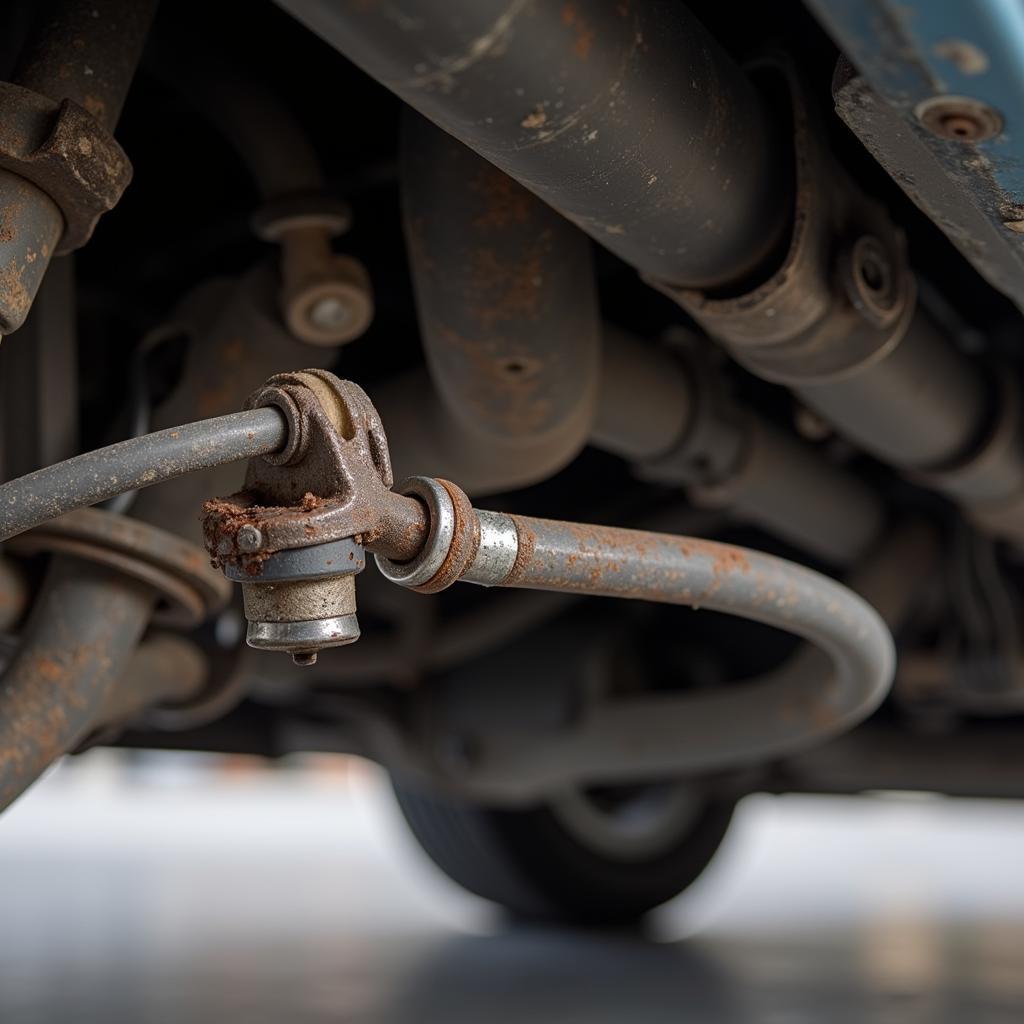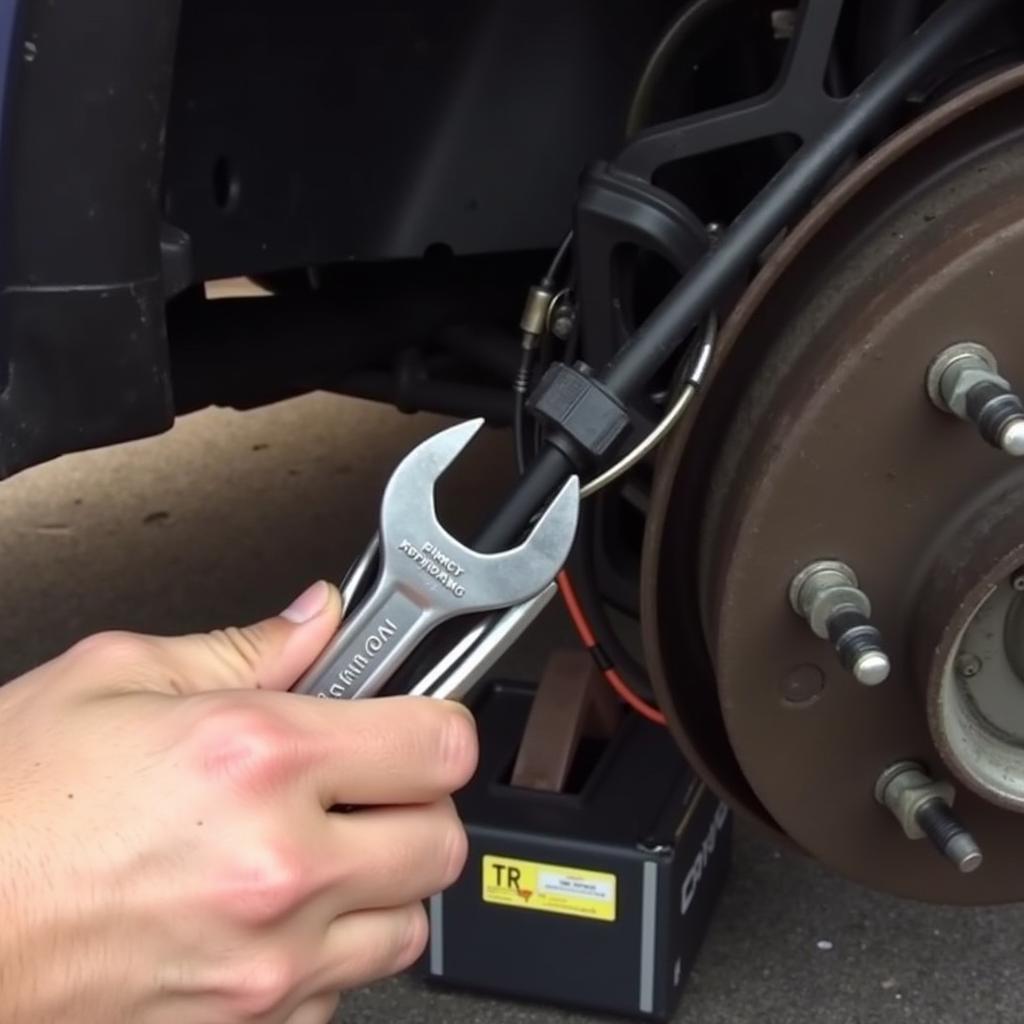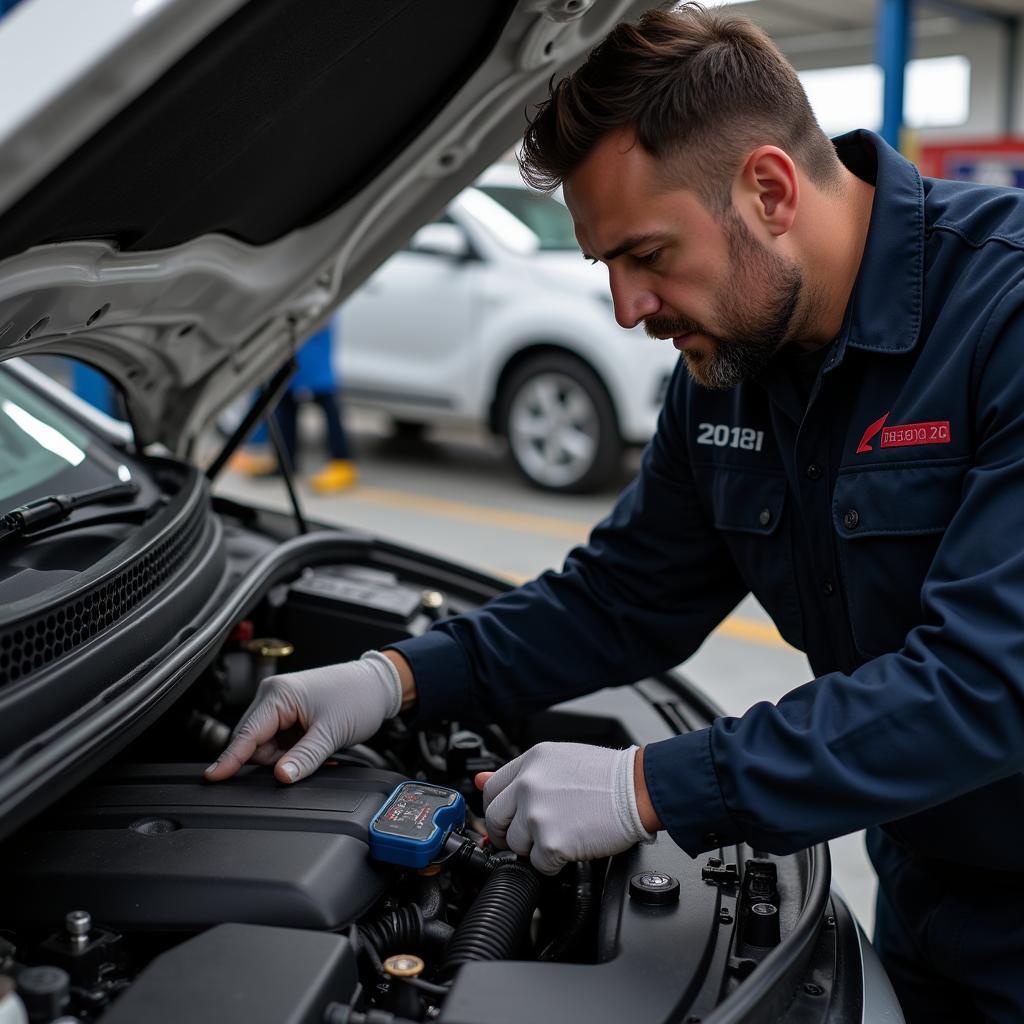Car Handbrake Stiff After Service: Troubleshooting and Solutions
A stiff handbrake after a car service can be frustrating. This article explores the common causes of a tight handbrake following maintenance and offers practical solutions to help you regain smooth operation.
Why is My Car Handbrake Stiff After Service?
Several factors can contribute to a stiff handbrake after your car has been serviced. It’s important to identify the root cause to address the issue effectively.
- Incorrect Adjustment: The most common reason is improper adjustment of the handbrake cable or mechanism during the service. This can result in excessive tension, making the handbrake difficult to engage and release.
- Seized Cables: Handbrake cables can become seized due to corrosion, especially in areas with harsh weather conditions. If the cables weren’t lubricated or checked during the service, they might have become stiff.
- Sticking Caliper or Drum Brake Components: Sometimes, the caliper piston or drum brake components can become sticky or seized. This can cause the handbrake to feel tight and unresponsive, particularly after the car has been parked for a while.
- Parking Brake Shoes: Worn or damaged parking brake shoes within the rear brake drums can also lead to a stiff handbrake. If these weren’t inspected or replaced during the service, they could be contributing to the issue.
- New Brake Pads and Rotors: If new brake pads and rotors were installed during the service, they might require a short break-in period before functioning optimally. This can sometimes lead to a temporarily stiff handbrake.
 Stiff Handbrake Cable After Car Service
Stiff Handbrake Cable After Car Service
How to Fix a Stiff Car Handbrake
Diagnosing the cause of a stiff handbrake requires a systematic approach. Here’s a step-by-step guide to help you troubleshoot and resolve the issue:
- Check the Handbrake Lever: Ensure the lever isn’t being pulled up too high. There should be a noticeable clicking sound as you engage the handbrake, and it shouldn’t require excessive force.
- Inspect the Cables: Visually inspect the handbrake cables for any signs of damage, corrosion, or fraying. If the cables appear damaged, they need to be replaced.
- Lubricate the Cables: Applying a suitable lubricant to the handbrake cables can help improve their flexibility and reduce stiffness.
- Check the Calipers (Disc Brakes): If your car has disc brakes, inspect the calipers for any signs of sticking or seizure. If the calipers are problematic, they may need to be cleaned, lubricated, or rebuilt.
- Inspect the Drum Brakes (Drum Brakes): For cars with drum brakes, check the parking brake shoes and other components within the drums for wear or damage. If necessary, replace the worn parts.
- Adjust the Handbrake: If the handbrake is still stiff after checking and lubricating the cables, it likely needs adjustment. This usually involves tightening or loosening the adjusting nut on the handbrake cable.
 Adjusting Handbrake Cable
Adjusting Handbrake Cable
When to Seek Professional Help
While some handbrake issues can be resolved with basic DIY maintenance, it’s often best to consult a qualified mechanic, especially if:
- You’re not comfortable working on your car’s braking system.
- You’ve tried the above steps, and the handbrake is still stiff.
- You suspect a more serious issue, such as a seized caliper or damaged brake components.
“A stiff handbrake can be more than just an inconvenience,” says John Smith, Certified Automotive Technician at Smith Auto Repair. “It can be a safety hazard, especially on inclines. If you’re unsure about how to fix it, it’s always best to seek professional advice.”
Conclusion
A stiff car handbrake after service can stem from various factors, ranging from simple cable adjustments to more complex brake component issues. By following the troubleshooting steps outlined in this article, you can often identify the cause and resolve the problem. However, if you’re unsure about any aspect of brake maintenance, seeking professional assistance is always recommended to ensure your safety and the proper functioning of your vehicle’s braking system. Remember, a properly functioning handbrake is crucial for safe parking and overall vehicle control.
FAQs
- Is it normal for the handbrake to be stiff after a service? Sometimes a slight stiffness is normal, especially with new brakes. However, excessive stiffness indicates a problem.
- Can I drive with a stiff handbrake? While you can technically drive, it’s not recommended as it can cause premature wear and overheating of the brakes.
- How often should the handbrake be checked? It’s a good idea to have your handbrake checked during regular car services.
- How much does it cost to fix a stiff handbrake? The cost varies depending on the cause and the necessary repairs.
- Can I adjust the handbrake myself? If you’re mechanically inclined, you can, but it’s best to consult your car’s manual for specific instructions.
- What if my handbrake is still stiff after adjustment? If the problem persists, consult a qualified mechanic.
- Can a stiff handbrake affect the MOT test? Yes, a faulty handbrake can lead to MOT failure.
Need further assistance? Contact us via WhatsApp: +1(641)206-8880, Email: [email protected] or visit our service center at 456 Oak Avenue, Miami, FL 33101, USA. Our 24/7 customer support team is ready to help.

